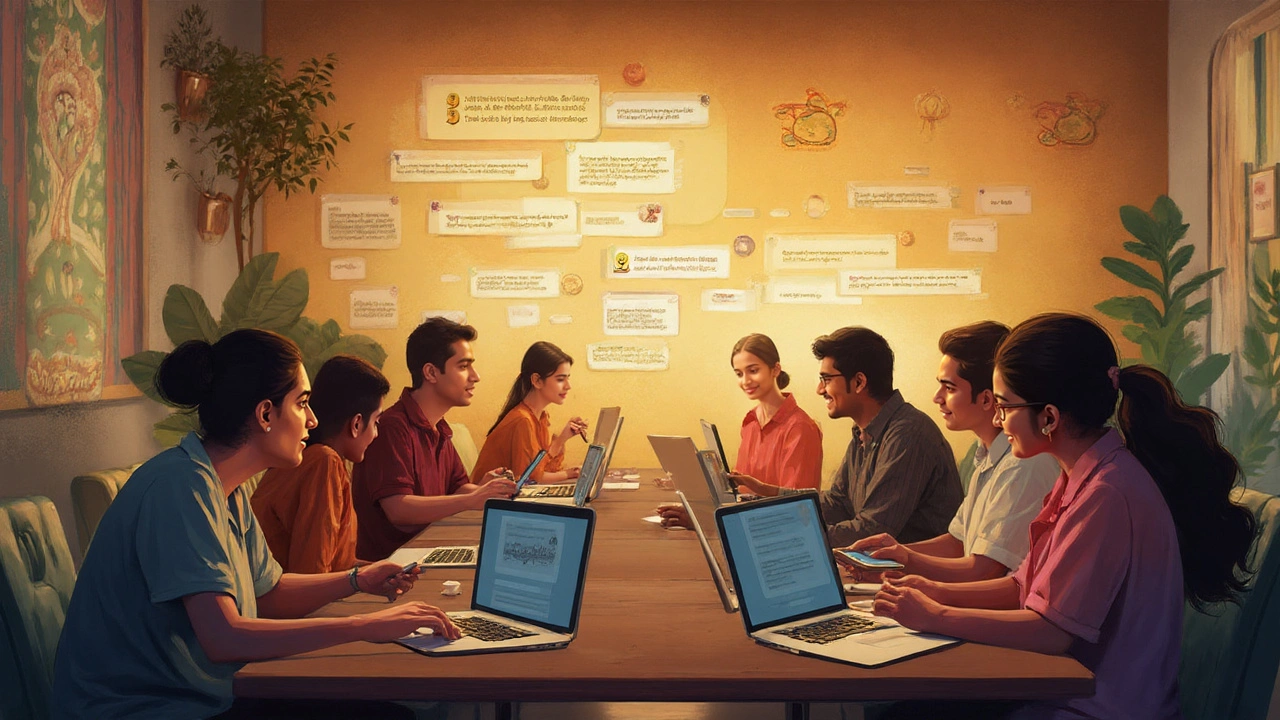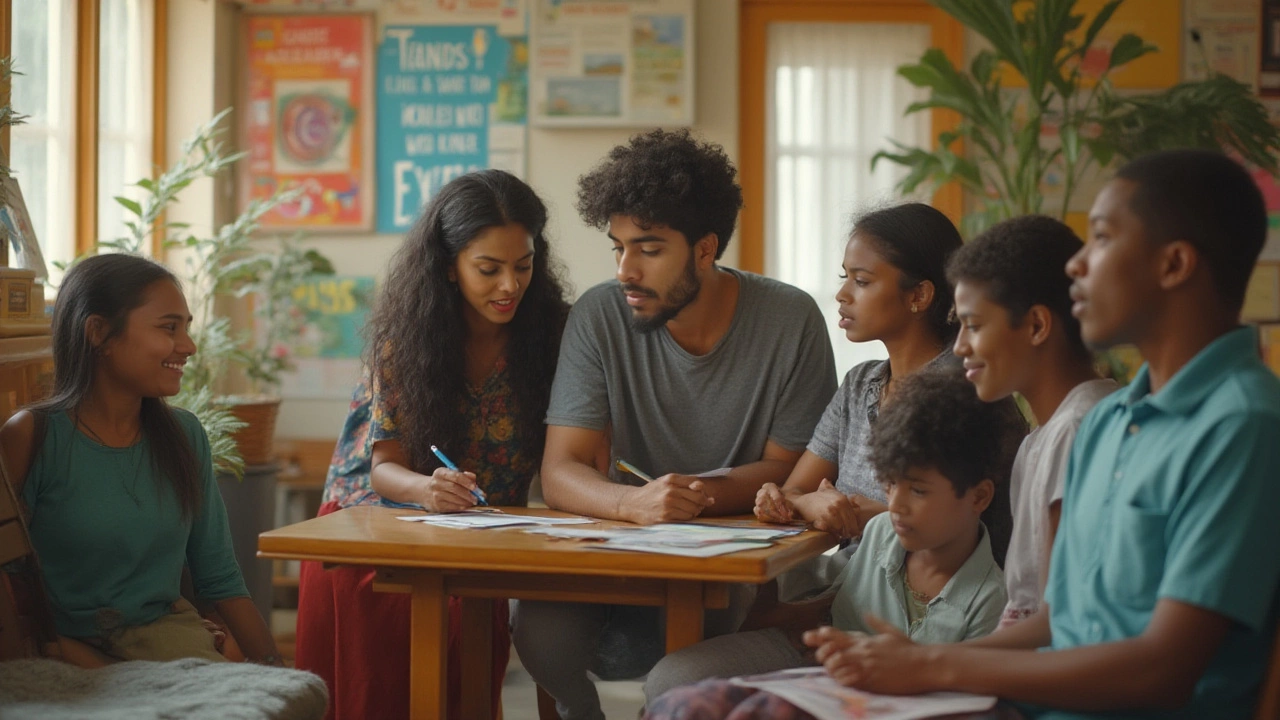Discover clear strategies to locate and build strong social support, from peer groups and community clubs to online forums and professional help.

- Created by: Lydia Carmichael
- Completed on: 24 Sep 2025
- Categories: Community Support
Social Support Planner
Finding reliable social support can feel like hunting for a lifeline when life gets chaotic. Whether you’re coping with stress, juggling a new job, or simply craving deeper connections, the right networks make a tangible difference in wellbeing. This guide walks you through concrete steps, real‑world examples, and the most trusted resources to help you build a supportive circle that sticks.
What Is Social Support?
Social Support is a multifaceted system of relationships that provides emotional, informational, and practical assistance, often measured by its impact on mental health, stress resilience, and overall life satisfaction. Researchers at the University of Auckland report that adults with high‑quality social support are 50% less likely to develop depression. Understanding the layers-emotional, instrumental, informational, and appraisal-helps you target the type you need right now.
Types of Support You Might Need
- Emotional support: empathy, listening, and validation.
- Instrumental support: tangible help like rides, chores, or childcare.
- Informational support: advice, resources, or referrals.
- Appraisal support: constructive feedback that aids self‑assessment.
Each type often comes from a different source-friends might give emotional comfort, while a community group can offer instrumental assistance. Mapping these helps you spot gaps in your existing network.
Map Your Current Network
- List the people you turn to for each support type.
- Rate the reliability on a scale of 1‑5.
- Identify missing categories (e.g., no one helps with childcare).
- Set a target: add at least one new source for each low‑rated area within a month.
This quick audit turns vague feelings of loneliness into actionable data.
Peer Support: Connecting With People Who ‘Get It’
Peer Support is a mutual‑help arrangement where individuals with similar experiences share resources, encouragement, and coping strategies, often organized through groups or online platforms. In Wellington, the "Wellbeing Warriors" meet twice a month at the community centre, providing a safe space for new parents, recent graduates, and anyone navigating life transitions.
Key benefits include reduced isolation, shared coping tools, and a sense of belonging. Peer groups typically operate on a voluntary basis, making them cost‑effective and highly inclusive.
Community Groups: Local Hubs for Shared Interests
Community Group is a locally‑based collective that brings people together around a common activity, cause, or interest, ranging from sports clubs to arts workshops. By joining a group aligned with your hobbies-such as the Wellington Hiking Club or a book club at the local library-you naturally meet people who share your passions, which accelerates trust building.
Community groups often collaborate with charities, giving you a dual benefit: social connection and a chance to contribute to a cause.

Online Forums & Social Media: Digital Spaces for Support
Online Forum is a virtual discussion board where users post questions, share stories, and exchange advice across geographic boundaries. Platforms like Reddit’s r/mentalhealth, Facebook’s "Wellington Parents" group, and dedicated apps such as 7 Cups connect you with mentors and companions anytime, anywhere.
Digital spaces excel at informational support-quick answers to practical problems, links to resources, and real‑time feedback. However, they may lack the depth of face‑to‑face emotional support, so blend online and offline approaches.
Volunteer Organizations: Giving Back While Gaining Support
Volunteer Organization is a non‑profit entity that mobilizes individuals to provide services or aid to community members in need, such as the Wellington Community Kitchen or the Red Cross. Volunteering creates a shared purpose, fostering instrumental and emotional support among participants. Plus, it expands your network beyond personal circles to include professionals, activists, and civic leaders.
Many volunteers report a 30% boost in perceived social connection after three months of regular involvement.
Family and Friends: The Core of Your Support System
Family is a primary social unit typically linked by blood, marriage, or adoption, offering a mix of emotional and instrumental help. Even when geographical distance separates you, scheduled video calls, shared playlists, or collaborative photo albums keep the bond strong.
Friendship is a voluntary, reciprocal relationship based on mutual affection, trust, and shared experiences. Strong friendships contribute to lower stress hormones and higher life satisfaction, according to a 2023 New Zealand health survey.
To nurture these ties, practice active listening, celebrate milestones, and offer reciprocal help when you can.
Professional Resources: When You Need Expert Guidance
Mental Health Service is a formal system of counseling, therapy, and psychiatric care delivered by licensed professionals, often coordinated through public health clinics or private practitioners. In Wellington, the Mental Health and Addiction Service (MHAS) provides free counseling for residents, while private therapists offer sliding‑scale fees.
Professional support complements informal networks by delivering evidence‑based interventions, crisis management, and tailored coping strategies.
Comparison of Common Support Options
| Attribute | Peer Support | Community Group | Online Forum |
|---|---|---|---|
| Accessibility | Medium - often requires scheduled meetings | High - open to the public, many free options | Very High - accessible 24/7 from any device |
| Typical Size | 5‑15 members | 10‑100 participants | Hundreds to thousands of users |
| Cost | Usually free or low‑fee | Free to modest fees | Free (ads) or subscription for premium |
| Best For | Shared experiences (e.g., new parents) | Shared interests and local events | Quick information and anonymity |
Building Sustainable Support
Once you’ve added a few new connections, keep them thriving:
- Schedule regular check‑ins-a monthly coffee, a group Zoom, or a quick text.
- Offer reciprocal help-the give‑and‑take balance sustains trust.
- Set boundaries-clarify the kind of support you can give and receive.
- Re‑evaluate every 3‑6 months-adjust your network as life changes.
Remember, social support isn’t a one‑off find; it’s a living system you nurture over time.

Frequently Asked Questions
How can I start a peer‑support group if none exist nearby?
Begin by identifying a shared challenge (e.g., postpartum anxiety) and post an invitation on local Facebook pages, community noticeboards, or Eventbrite. Secure a low‑cost venue like a library meeting room, set a simple agenda, and promote a consistent schedule. Within a few weeks, word‑of‑mouth usually brings 5‑8 committed participants.
What if I feel uncomfortable sharing personal struggles in online forums?
Choose platforms that allow anonymity, such as Reddit or 7 Cups, and start by reading before posting. When ready, use a pseudonym and share only what feels safe. Gradual participation builds confidence while protecting privacy.
Can volunteering really improve my mental health?
Yes. Studies from the University of Otago show that regular volunteers experience a 20‑30% reduction in depressive symptoms, thanks to increased social interaction, sense of purpose, and exposure to supportive peers.
How do I balance family obligations with building new support networks?
Integrate family into new activities when possible-invite your partner to a community event or join a family‑friendly volunteering day. Communicate your needs clearly, and carve out short, dedicated slots for personal networking without neglecting existing responsibilities.
When should I seek professional mental‑health services instead of informal support?
If you notice persistent sadness, anxiety that interferes with daily tasks, thoughts of self‑harm, or if informal support feels insufficient after a month, it’s time to consult a counselor or psychologist. Professional services provide evidence‑based treatment that complements peer or community help.
Dig into real experiences with support groups: their unexpected pros and cons, real-life stories, what science says, and tips to make the most of one.
Explore which foundations are truly making a difference for mental health in Texas. Get the facts, stories, and resources that matter most.

